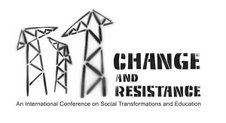Wojciech Woźniak
Department of General Sociology
University of Lodz
Estonia, Finland and Poland underwent the process of crucial transformation during past two decades. The political and economic situation of these three countries, as well as their pathway through the process of transition vary substantially. It seems that only the starting point for the changeover could be considered as similar to some extent. The common feature for all of them was unquestioned fact of Soviet dominance during the communist period. The dominance that lasted at least until the beginning of nineties and could be treated as a motive force for numerous political decisions undertaken during the transition period.
Obviously, the scale of subjection of Estonia, Finland and Poland towards their powerful neighbour varied substantially and the process of liberating from it lead to different outcomes. It could be stated that in many aspects it was costly and that the biggest price has been paid by those named sometimes in public debate and academic publications as “victims of transformation”. The paper proposed is an attempt to present how the political decisions “shaped” the process of transformation and directed to the current state of affairs in each of the countries. The special attention will be paid to the social costs of political actions experienced by the occupants of various positions of social ladder and to the social policy in a broad meaning adopted in Estonia, Finland and Poland. These countries were chosen because of the fact that nevertheless the similar staring points and challenges faced at the beginning of transition period, they all have adopted entirely different solutions in political, economic and social spheres. The insight into these processes with the comparative approach seems promising. It could lead to the exposure of some implicit or undefined aspects of political transformation. For example, in many cases priorities and the way of implementation of social policy could be explained by ideological and/or political premises of policy-makers. Nevertheless, this procedure could be also reversed and analyses of various social policy measures can explicate and prove hidden and unspoken reasons for some political actions.
The main base for the article will be research evidence collected and knowledge gathered during the realization of the PROFIT project (www.profit.uni.lodz.pl). PROFIT (full title: Policy Responses Overcoming Factors in the Intergenerational Transmission of Inequalities) is a multidisciplinary comparative research project financed by the European Commission under the 6th Framework Programme. Studies in a frame of PROFIT have been conducted in 8 countries and the main area of research interest was policy impact on the process of inheritance of social inequalities. Nevertheless, some part of empirical data collected during the research process referred directly to the above mentioned topic of the presentation.
Subscribe to:
Post Comments (Atom)

No comments:
Post a Comment